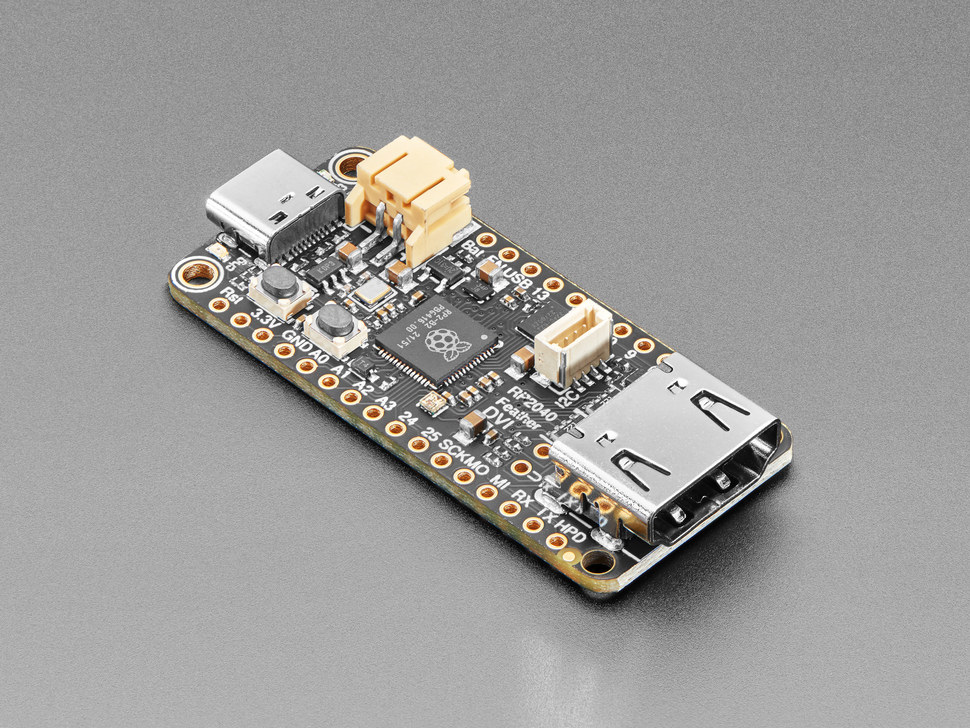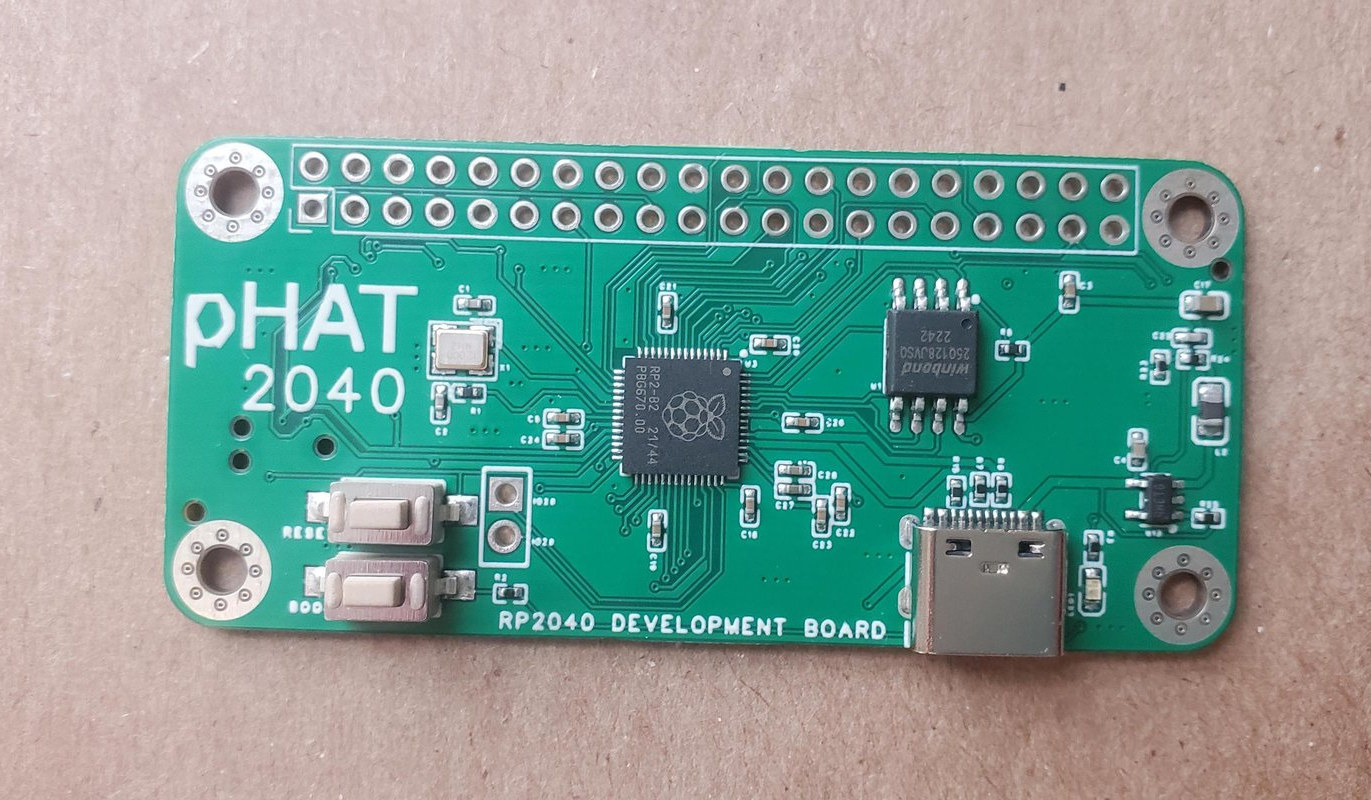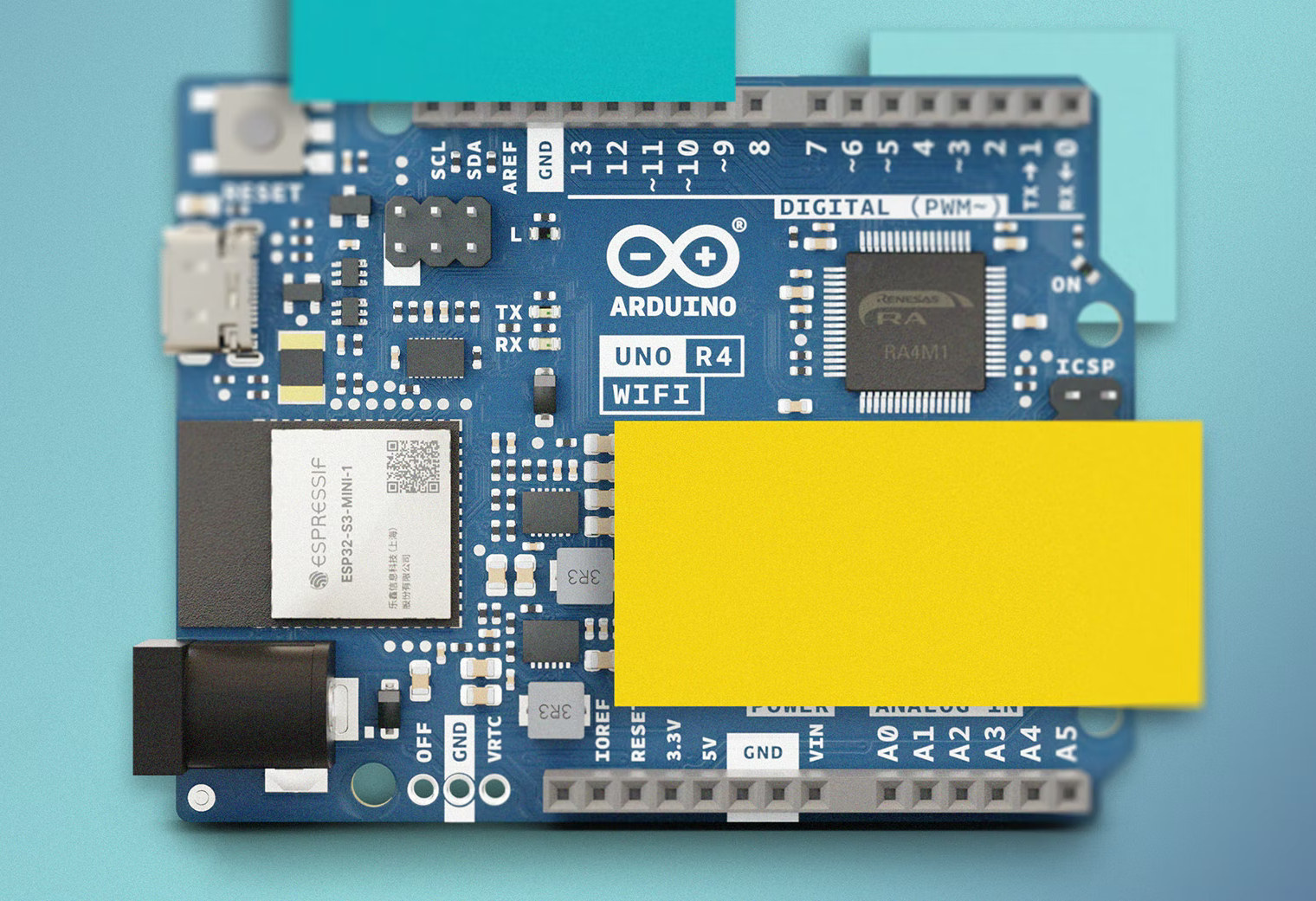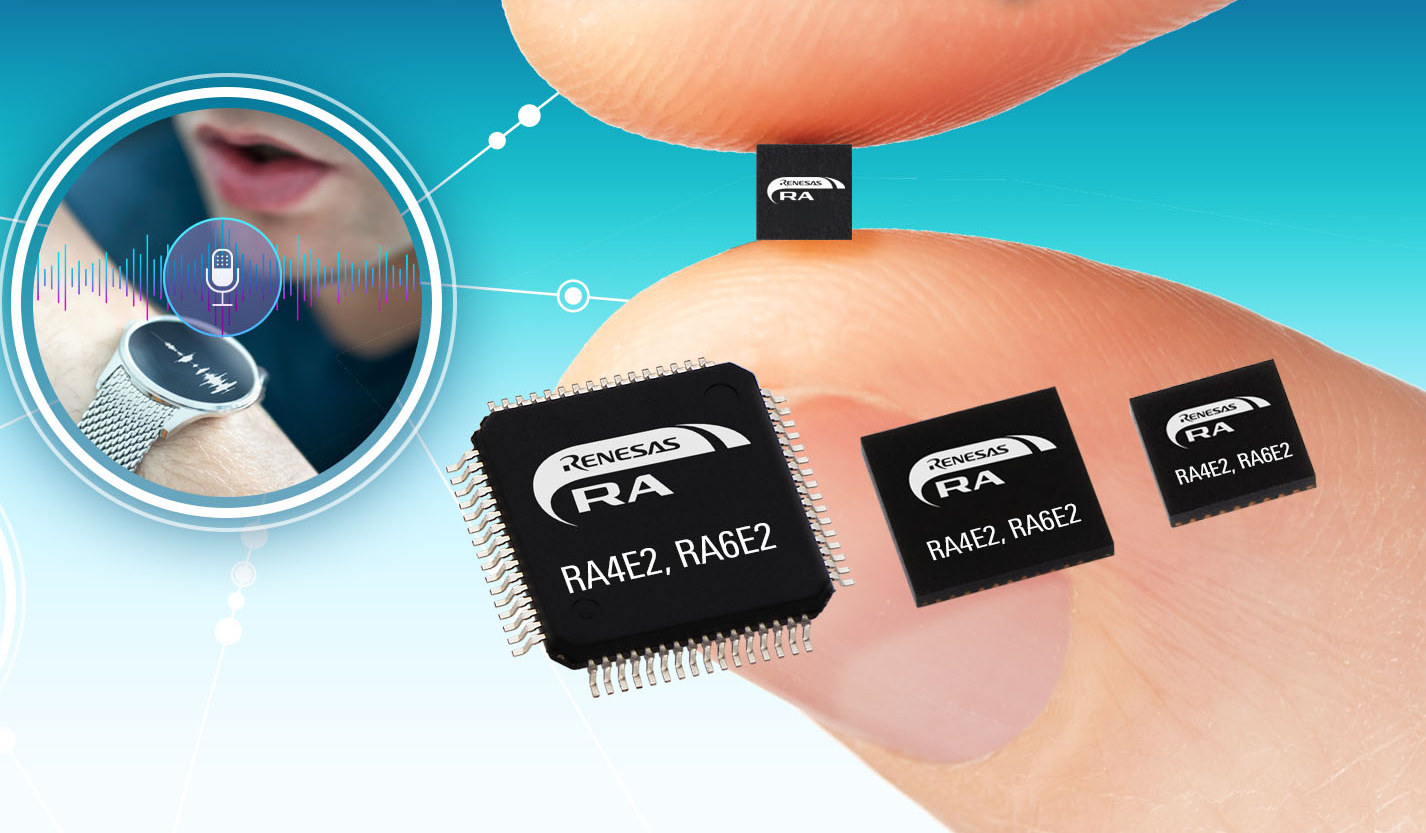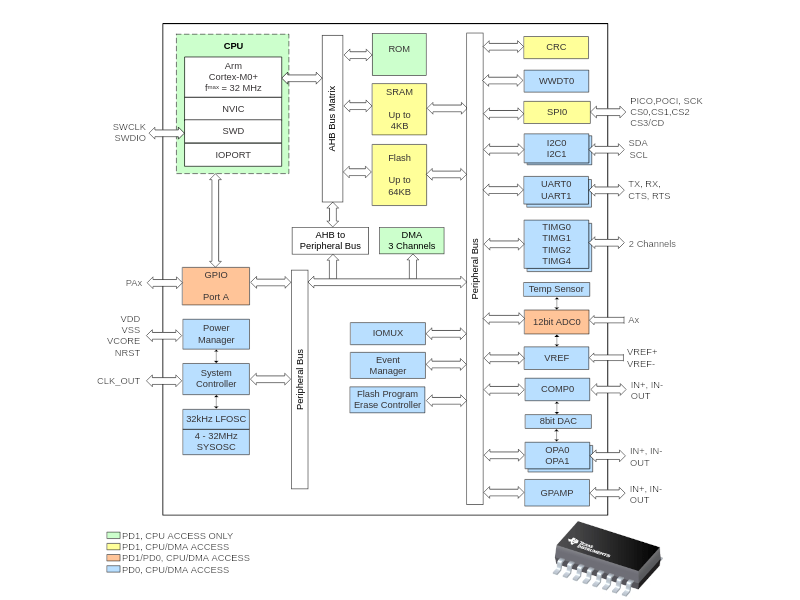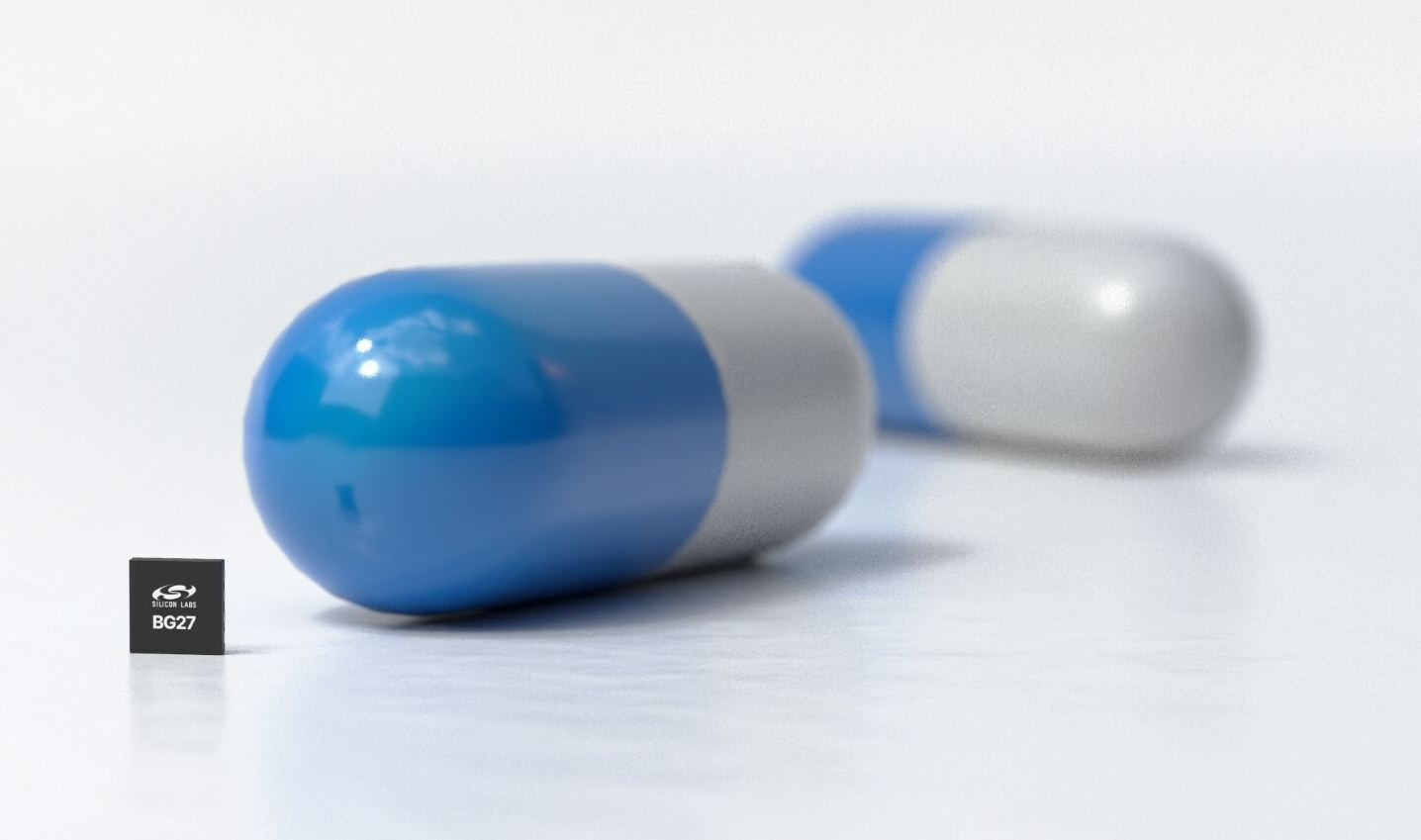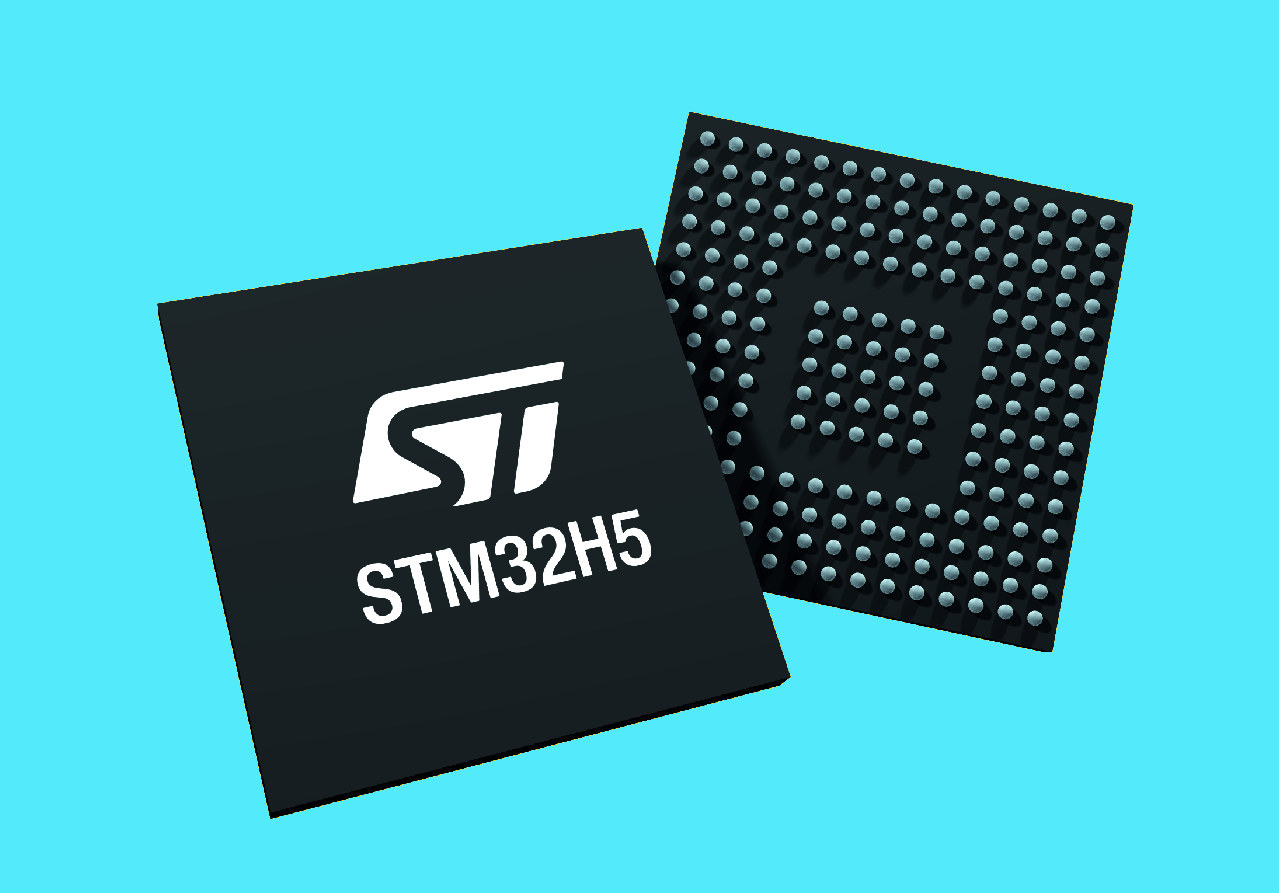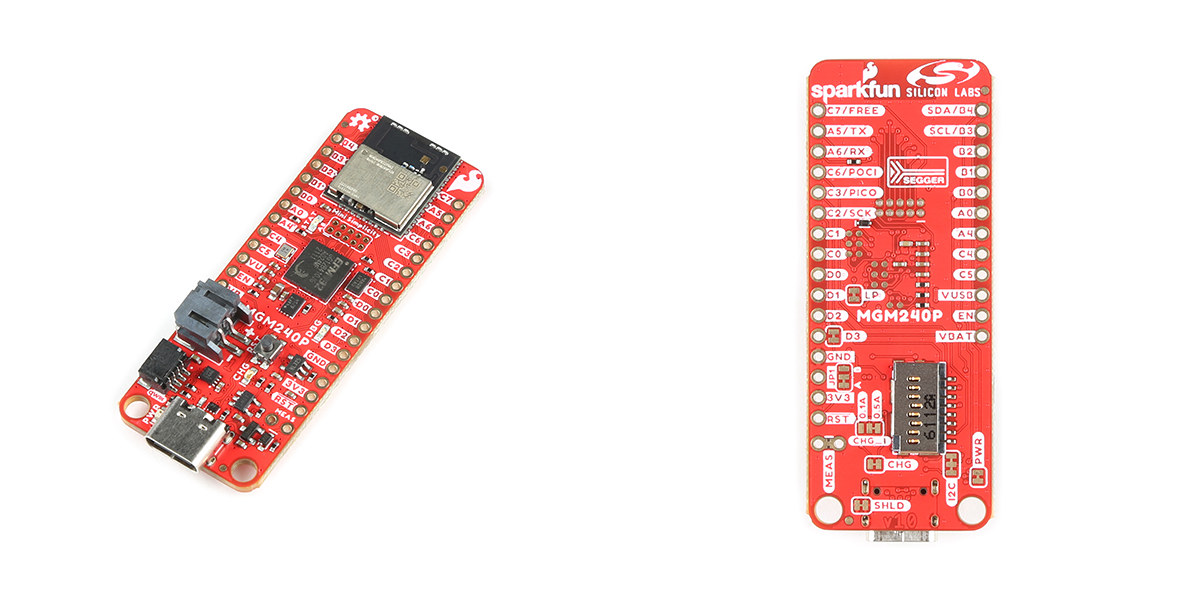“Adafruit Feather RP2040 with DVI Output Port” is another Raspberry Pi RP2040 board with an HDMI port that can output DVI video signal (no audio) to most TVs or monitors with an HDMI input port thanks to the PicoDVI project. The board builds upon the company’s Adafruit Feather RP2040 with the HDMI port adding just a few dollars. Adafruit Feather RP2040 with DVI Output Port specifications: MCU – Raspberry Pi RP2040 dual-core Arm Cortex M0+ microcontroller ~125 MHz (but it should be overclocked for DVI output) with 264 KB RAM Storage – 8MB SPI flash Video Output – 1x HDMI port for DVI output up to 320×240 or 400×240 resolution with 16-bit pixels, I2C signals to read EDID data, plus CEC and Utility pads broken out USB – 1x USB Type-C port I/Os Adafruit Feather compatible headers Up to 21x GPIOs 2x I2C, 2x SPI, 2x UART 4x 12-bit ADC […]
Raspberry Pi RP2040 pHAT board comes with a 40-pin GPIO header
0xC0FFEE’s RP2040 PHAT is both a Raspberry Pi RP2040 development board and a pHAT for Raspberry Pi and Pi Zero Linux SBCs that exposes the I/Os through the 40-pin GPIO header traditionally found in Raspberry Pi single board computers. The board comes with all features of the Raspberry Pi Pico board including a USB port for power and programming, an SPI flash, and a BOOT button, but also adds a Reset button. That means it’s software compatible, except for the user LED connected to GPIO 26, and works with the MicroPython and C SDKs, as well as the Arduino IDE, Zephyr RTOS, and more. RP2040 pHAT specifications: MCU – Raspberry Pi RP2040 dual-core Cortex-M0+ microcontroller @ 133 MHz with 264KB SRAM Storage – 128Mbit SPI flash (based on the chip in the photo above) USB – 1x USB 1.1 Type-C port used for power and programming Expansion – 40-pin Raspberry […]
Arduino UNO R4 Renesas RA4M1 32-bit maker board offered with optional ESP32-S3 WiFI & BLE module
Arduino have launched an upgrade to their 8-bit Arduino UNO R3 board with the Arduino UNO R4 featuring a 48 MHz Renesas RA4M1 Arm Cortex-M4F 32-bit microcontroller, and an optional ESP32-S3 module for WiFi 4 and Bluetooth 5.0 connectivity. The new Arduino UNO R4 offered improved performance and greater resources since the MCU is clocked three times faster than the 8bit AVR MCU found in the UNO R3, the board gets sixteen times more RAM (32KB vs 2KB to 32kB) and eight times more flash memory (256KB vs 32kB). The USB Type-B device port has been upgraded to a more modern USB Type-C port and the UNO R4 can take up to 24V supply voltage. Arduino UNO R4 (preliminary) specifications: Microcontroller – Renesas RA4M1 Arm Cortex-M4F MCU @ 48 MHz with 32KB SRAM, 256KB flash. 8KB dataflash Wireless (Arduino UNO R4 WiFi only) – ESP32-S3-MINI-1 module based on ESP32-S3 dual-core […]
Renesas introduces 100 MHz RA4E2 and 200 MHz RA6E2 Arm Cortex-M33 MCUs for wearables, sensors, appliances
Renesas Electronics has added two new groups to its 32-bit RA family of microcontrollers (MCUs) with the 100 MHz RA4E2 and 200 MHz RA6E2 Arm Cortex-M33 microcontrollers designed for “high-performance applications” in small packages such as sensing, gaming, wearables, and appliances. The new microcontrollers are equipped with 40 KB SRAM, 128 KB or 256 KB flash, and integrate various on-chip interfaces such as CAN FD, USB, QSPI, SSI, and I3C interfaces to offer an easy upgrade path for products based on other members of the Renesas RA Family. Renesas RA4E2 MCU group Both the RA4E2 and the RA6E2 are the most cost-effective microcontroller groups of the RA family with integrated CAN FD, with the RA4E2 group especially well-suited to cost-sensitive applications and other systems requiring relatively high performance, low power consumption, and/or small package size. RA4E2 key features: CPU – Arm Cortex-M33 core with TrustZone @ up to 100 MHz […]
Texas Instruments MSPM0 Arm Cortex-M0+ microcontrollers sell for 39 cents and up
Texas Instruments has just introduced its low-cost MSPM0 Arm Cortex-M0+ microcontroller portfolio comprised of the MSPM0L series with a 32 MHz CPU, up to 64 kB of flash, and 4 kB SRAM, and the MSPM0G series with an 80 MHz CPU, up to 128 kB of flash and 32 kB SRAM. Texas Instruments MSPM0L MSPM0L1306 key features: CPU – Arm 32-bit Cortex-M0+ core @ up to 32 MHz Memory – Up to 4KB SRAM Storage – Up to 64KB flash Digital peripherals 3-channel DMA controller 4x 16-bit general-purpose timers, each with two capture/compare registers supporting low-power operation in STANDBY mode, supporting a total of 8 PWM channels Windowed watchdog timer Analog peripherals 12-bit 1.45-Msps analog-to-digital converter (ADC) with up to 10 total external channels Configurable 1.4-V or 2.5-V internal ADC voltage reference (VREF) 2x zero-drift, zero-crossover chopper operational amplifiers (OPA) 1x general-purpose amplifier (GPAMP) 1x high-speed comparator (COMP) with 8-bit […]
Silicon Labs announces MG27 and BG27 Bluetooth LE & 802.15.4 SoCs for small devices, healthcare
Silicon Labs has just announced the tiny BG27 Bluetooth LE and MG27 multiprotocol wireless SoCs designed for small devices, and they will be especially useful in connected health applications, or the so-called Internet of Medical Things (IoMT), as well as wearables, sensors, switches, smart locks, and commercial and LED lighting. Both chips feature a Cortex-M33 core clocked at 76.8 MHz, up to 768KB flash, and up to 64KB RAM, but the BG27 only supports Bluetooth LE, Mesh, and propriety 2.4 GHz connectivity, while the MG27 also adds an 802.15.4 radio for Zigbee, OpenThread, and Matter protocols Silicon Labs BG27 and MG27 specifications: CPU – Arm Cortex-M33 @ 76.8 MHz with DSP instruction and floating-point unit Memory – Up to 64 kB RAM data memory Storage – Up to 768 kB flash program memory 2.4 GHz Radio BLE 5.3 Bluetooth mesh Proprietary 2.4 GHz MG27 adds Matter OpenThread Zigbee Modulation – […]
STMicro STM32H5 Arm Cortex-M33 MCU clocks at 250 MHz, supports STM32Trust TEE Secure Manager
STMicroelectronics has announced the STM32H5 Arm Cortex-M33 “high-performance” microcontroller family clocked at up to 250 MHz and supporting STM32Trust TEE Secure Manager to boost both performance and security in “next-generation smart applications”. The STM32H5 family has three product types namely the higher-end STM32H563/573 with up to 2MB flash, 640KB SRAM, Ethernet, and hardware security, the STM32H562 with a similar design but fewer interfaces, and the entry-level STM32H502 with 128KB flash, 32KB SRAM. STM32H5 key features and specifications: MCU core – Arm Cortex-M33 core with TrustZone technology, digital signal processing (DSP) and floating-point unit (FPU) running up to 250 MHz; Up to 375 DMIPS and a 1023 CoreMark score executing from the flash memory Memory and Storage STM32H563/573/562 – 1 to 2 Mbytes of flash memory, 640 Kbytes of SRAM STM32H503 – 128 Kbytes of flash memory and 32 Kbytes of RAM. OSPI serial flash memory interface Up to 2x SDMMC […]
SparkFun Thing Plus Matter – MGM240P board supports Matter, Zigbee, OpenThread, and Bluetooth Low Energy 5.3
SparkFun Thing Plus Matter – MGM240P board targets the development of applications using the Matter IoT protocol and features the MGM240P module based on Silicon Labs EFR32MG24 Arm Cortex-M33 wireless microcontroller with an 802.15.4 radio for Zigbee and OpenThread plus a Bluetooth Low Energy (BLE) 5.3 radio. The board also offers two rows of I/Os for upto 21 GPIOs and a Qwiic connector for expansion, another EFRM32 MCU acting as a J-link debugger, a microSD card, and can be powered via USB-C or a LiPo battery. SparkFun Thing Plus Matter – MGM240P specifications: MGM240P wireless module SoC – Silicon Labs EFR32MG24 microcontroller CPU – 32-bit Arm Cortex-M33 @ 39 MHz (MCU/module specs say up to 78 MHz, but maybe it’s clocked lower in this board for some reason, maybe lower power consumption?) Memory/Storage – 1536kB Flash Memory, 256kB RAM Wireless – 802.15.4 wireless protocols (Zigbee and OpenThread) and Bluetooth Low […]


